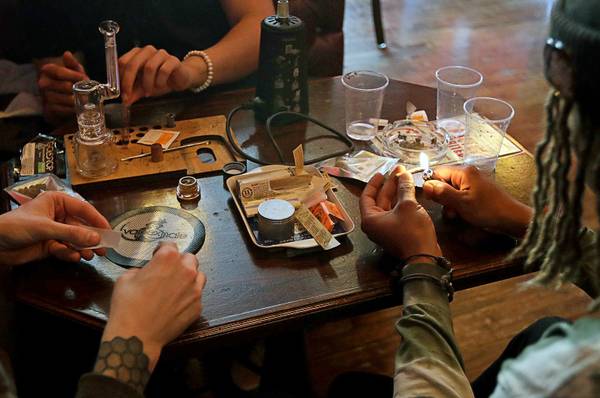Related news
Marijuana lounges in Clark County won’t open until at least the summer, according to an official in charge of business licensing.
Jacqueline Holloway, the county’s director of the Department of Business License, said Wednesday a 12-member green ribbon panel will meet four times, starting Feb. 12, and present their recommendations to the Clark County Commission in June or July.
She jokingly quoted Nelson Mandela during a 30-minute speech to the Las Vegas Medical Marijuana Association, saying, “It always seems impossible until it is done,” in reference to marijuana lounges opening in the county.
“We want a have a set of recommendations to the board of county commissioners that are reasonable, tangible and feasible,” Holloway said.
The green ribbon panel, established in 2017 when recreational marijuana use and possession became legal, has met on and off since then, presenting findings to the Clark County Commission on separate occasions in 2017 and 2018. The constantly changing panel includes representatives from Nevada’s marijuana and gaming industries.
New county commissioner Tick Segerblom has frequently stated his intent to begin a regulated lounge licensing process, and led a fact-finding trip to explore lounges in San Francisco in November.
The Las Vegas City Council has also held two public workshops and drafted an ordinance to open marijuana lounges by the end of spring. The ordinance could be voted on as early as next month.
Holloway also addressed other issues facing the state’s weed industry.
She said that black market crime, especially “pop-up flea markets” involving street vendors renting out warehouses to illegally sell large quantities of the plant, has declined in the county since 2017. Once operating as frequently as weekly, the illegal markets have dropped “significantly,” she said.
The shutting down of five black market warehouses, increased surveillance and tips from law enforcement resources have allowed officials to eradicate the operations.
Holloway also spoke on the lack of ethnic diversity in the industry, saying that African-American and Hispanic entrepreneurs have not been given equal opportunity to state licenses as Caucasians. The county in response has issued local licenses that allow weed entrepreneurs to provide paraphernalia and other goods and services not explicitly prohibited by the state to support the state-licensed pot establishments.
“We want to get everyone involved,” she said.

